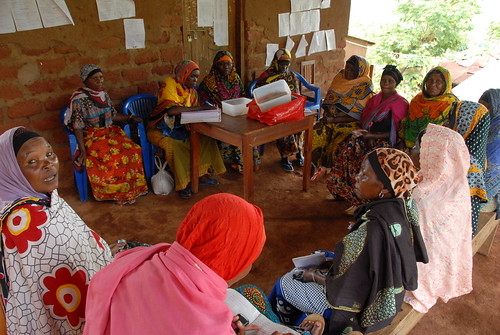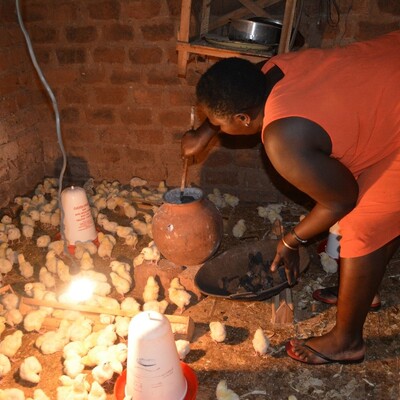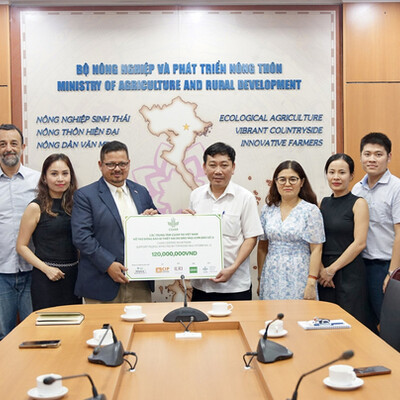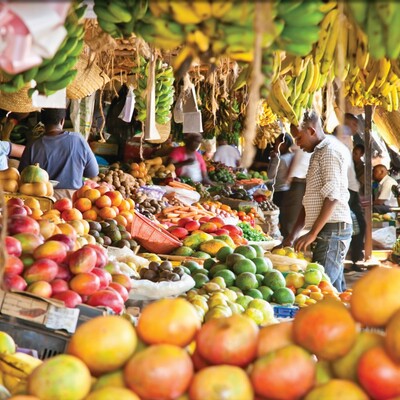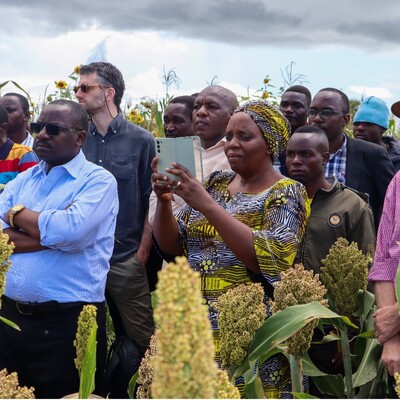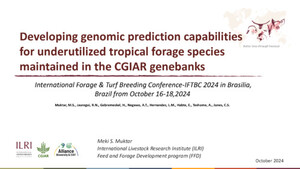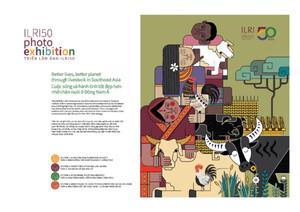
Value chain upgrading and inclusion of smallholders in markets: Role of multistakeholder processes in dairy development in Tanzania
Women members of the Ubiri village dairy innovation platform in Lushoto, Tanzania (photo: ILRI\Niels Teufel).
Increasingly, value chain approaches are integrated with multistakeholder processes to facilitate inclusive innovation and value chain upgrading of smallholders. This pathway to smallholder integration into agri-food markets has received limited analysis. An analysis of this integration was carried out by researchers from the International Livestock Research Institute (ILRI) and Wageningen University, through a case study of an ongoing smallholder dairy development program in Tanzania, locally referred to as ‘Maziwa Zaidi’.
The program is implemented in the framework of the Livestock CRP by the International Livestock Research Institute (ILRI) in collaboration with Sokoine University, International Center for Tropical Agriculture (CIAT), Heifer International, Faida Mali and TALIRI (Tanzania Livestock Research Institute).
Value chain upgrading and innovation systems perspectives were combined in an analytical framework to interpret the findings, which show that multistakeholder processes enhance horizontal and vertical coordination but limit process and product upgrading.
The main conclusion from the study’s findings, which are published in The European Journal of Development Research, is that although such processes may catalyse smallholder market inclusion, their effects are largely bounded by existing value chain structures (e.g. production system, fragmented markets), time frame to achieve the expected outcomes (e.g. cattle production cycles take much longer than poultry or crops cycles) and how prevailing institutional constraints are addressed, which may restrict the intentions of such collaborations. In this case, the authors found that enlarging smallholder opportunities for inclusion is tied to enhancing a type of value chain governance in which more coordinated markets lend themselves to enabling various upgrading strategies.
The findings also show that the various upgrading dimensions are interdependent and cannot be pursued sequentially. The authors emphasize that given the embeddedness of the institutional challenges that surround smallholders, it would make sense only if the value chain interventions based on multistakeholder processes were designed to adequately diagnose and explicitly target the institutional logic underlying the seemingly intractable challenges. This calls attention to the starting points of value chain interventions and the socio-political dynamics that are part of multistakeholder processes.
More research by the Livestock CRP is therefore needed to understand whether there are optimal configurations of actors in multistakeholder processes to effectively support inclusive integration of smallholder in the value chain. This can be tied to seeking further insight on how inclusiveness of multistakeholder processes is operationalized.
Read more here.





